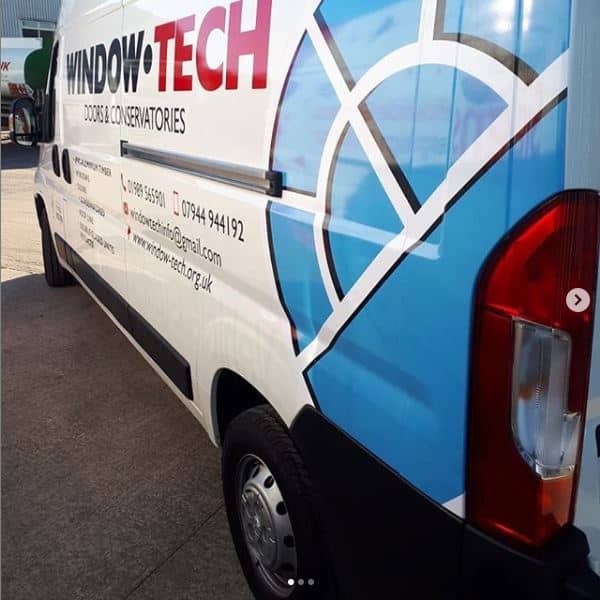A van driver’s guide to Laws and Penalty Charges

If you’re intending to drive a van in the UK it’s best to be up to date with the latest rules and regulations before hitting the road. Failure to meet these guidelines might mean penalty points on your license and a hefty fine, or in more serious cases, losing your license altogether.
That’s why we’ve put together a list of some of the most important laws you’ll need to remember before you take your van out for a spin. We’ve listed the potential repercussions of breaking these laws too, so you won’t be in for any nasty surprises should something go wrong.
Let’s get started then.
Eligible to Drive a Van?
A fairly obvious place to start. Are you even allowed to be driving a van? There are a few basic requirements here and unless you meet each of them, you shouldn’t even be putting the key in the ignition.
Van Weight
Anybody with a standard driving license (also known as ‘Category B’) can drive a van that weighs up to 3,500kg. Anything heavier than this and there might be restrictions. If you’re planning on driving a van then always check how much it weighs. Depending on when you passed your test and the weight of the vehicle, driving certain vans could be illegal.
Those who obtained their license after 1 January 1997 might be required to take another test if they want to drive a van that weighs between 3,500kg and 7,000kg.
We suggest checking which weight vehicles your driving license permits you to drive by visiting the government website here.
Potential repercussions:
Fine: Up to £1000
Penalty Points: 3 to 6
Insurance, Tax and MOT
Another fairly obvious one. Are you insured to drive a van? Is the van taxed? And does it have an up to date MOT?
At minimum you’ll require third-party insurance to cover the driving of any vehicle on UK roads, of course, includes vans. if you own the van then you’ll be asked by the insurer whether it’s for business or personal use, if you’re caught driving on the wrong policy then your insurance may become void.
Potential repercussions:
Fine: Unlimited
Penalty Points: 6 to 8
Taxing your van is quick and easy. Depending on the type of lease you opt for though, you may or may not need to fork out for this. If you’ve taken out an operating lease (contract hire) then this isn’t something you have to worry about, however if you have a straight finance lease or own the van, you will need to factor in taxing your new vehicle.
Potential repercussions:
Fine: Up to £1000
Penalty Points: n/a
Again, making sure your van is up to date with its MOT is quick and easy, although if you’ve bought your new vehicle on an operating lease (contract hire) it’s not something you’ll have to worry about. When a van is brand new it’s exempt from MOT testing for the first three years, after this period an MOT test will be required annually.
Potential repercussions:
Fine: Up to £1000
Penalty Points: n/a
Rules on the Roads
Speed Limits
When driving a van you’re subjected to lower speed limits than those driving cars. This one catches a lot of people out, especially those renting or leasing vans.
When you’re driving a van here are the only speed limits you need to remember:
Local Roads: 30mph (as marked)
Single Carriageway: 50mph
Dual Carriageway: 60mph
Motorways: 70mph (60mph if towing)
Potential repercussions:
Fine: Up to £2,500
Penalty Points: 3 to 6
For more information on speed limits, read our blog, Speed Limits in LCVs.
Van Loading Weight
If you’re going to be loading your van then you’ll have to make sure it doesn’t weigh more than its designated ‘design gross weight’. This will vary depending on the make/model of the van but you’ll be able to find the exact value by checking the van’s vehicle identification number plate—a unique seventeen digit pin that you’ll find stamped into the van’s chassis.
A recent study by the Driver and Vehicle Standards Agency (DVSA) found that nearly 12,000 vans on UK roads were being driven whilst overloaded. It affects the safety of the vehicle by increasing stopping distances and causing deterioration of the tyres and suspension.
You can check the weight of a van by finding the closest weighbridge or truck scale. If it’s found to be over its design gross weight, then you’ll either need to lighten the load or have it towed to its destination.
Potential repercussions:
Fine: Up to £300 OR High Court Summons
Penalty Points: n/a
Towing
Using your van to tow another vehicle or a trailer also comes with certain stipulations, relating again to the weight of your vehicle. The ‘gross train weight’, is the combined weight of the van, its trailer, and the trailer’s load. If you’ve got a standard Category B driving license this weight must not exceed 3,500kg.
Again, if your license was obtained after 1 January 1997, you may be required to take further tests before legally performing towing duties.
Fine: n/a
Penalty Points: n/a
Loading & Unloading a Van
It’s important you know where and when you can legally load and unload the contents of your van. The most obvious place is in designated loading bays. They’re easily distinguishable—a white dotted box in the road marked ‘Loading Only’. Any restrictions that may apply to these bays will be suitably sign posted nearby.
This said, not every road has loading bays. In such cases you should refer to the yellow vertical lines on the kerb. A single yellow line will mean loading at certain times – again, you’ll find these times suitably sign posted nearby – whereas double yellow lines mean no loading at any time.
Depending on location you’ll typically be allowed between 20 and 40 minutes to load/unload your van. We recommend contacting the local council if you want to know exactly how long you’re allowed to be parked.
Fine: n/a
Penalty Points: n/a
(It’s worth noting that if you’re parked in an obviously hazardous spot – such as on a bridge or on the corner of a road – then the relevant authorities will be within their rights to have your van moved and you will be charged for this process.)
So there you have it. A list of some of the most important laws and penalty charges you should be aware of before driving your van on UK roads.
Remember, the above are specific to van drivers. Don’t forget that you’ll also be subject to many of the same rules and penalties that apply to those driving cars. For a complete list of these visit the Driver and Vehicle Standards Agency.
At Rapid Vans We have a range of low-cost finance options available, including a cash purchase, van leasing, and hire purchase to get your business on the road. So if you’re planning to leaseing a van, speak to the Rapid Vans team today on 01446 502955.


